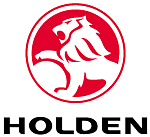
24 May 2003
|
Thumbs
down for Torana Holden Innovation chief engineer Dr Laurie Sparke said the Torana was unlikely to gain approval for production because there were other opportunities for future models being exposed that offered greater potential. "We might reach the conclusion the Torana is the way to go, but considering all the possibilities I think it is most likely there will be a range of opportunities which offer us more value or as a stepping stone to somewhere else we want to be 20 years out," he said. "We already have some really exciting opportunities that are way beyond our past experiences. They are massive opportunities." The reborn Torana would be a rear-wheel drive six-cylinder car built on a shortened version of the VE Commodore platform using smaller capacity versions of the forthcoming HFV6 engine. While not a signed-off program by any means, styling studies have been undertaken and Mr Hanenberger has spoken enthusiastically of the concept for a number of years as a project post-2005. He envisages it as a strong export model that would offer the same drivetrain and sheetmetal flexibility that Commodore will soon start to display with all-wheel drive, crew-cab, cross-over wagon and possibly the SSX hatch in the pipeline. Mr Hanenberger also believes it would be a good domestic bulwark against a sudden slump in large car sales triggered by massive fuel increases or legislative action. But Dr Sparke characterises Torana as an example of the traditional blue-sky method of car creation which Holden Innovation (HI) replaces with a whole new logical way of product planning. The way Dr Sparke tells it, car company methods are back to front when it comes to deciding on new models, and HI corrects that. "From this point on we have a different approach to business," he told GoAuto. "In the past we built a car and then figured out how to maximise our opportunities. But now we are standing back and finding out what the opportunities are and plotting a course for Holden into the future." Mr Sparke's technology development group takes the market modelling results of HI's other arm, the product concept synthesis group, to develop concepts along with relevant product and processes technologies. Five key areas have been designated for the group to focus on in its developments: * Flexible architecture "For Holden to be successful in the global marketplace as the smallest player we have to be world leaders or state of the art in those five areas we have designated," said Dr Sparke. "If we can be world leaders we can have a competitive edge over our bigger competitors." Mr Sparke said there were many opportunities for Holden to exploit around the globe despite its reliance on large, rear-wheel drive, V6 and V8 cars as an export base. "Remember that Rolls-Royce doubled its volume by exporting into China," Dr Sparke said. "We don't have to find markets of 200,000. We can make profits from volumes of 20,000 here, 30,000 there, 50,000 there, provided we have a plant that's flexible enough to make them down the same production line, so we don't have to reinvest in new plant to make each one. "We have to design the manufacturing process and the concepts so it can be flexible enough to make one station wagon, one four-wheel drive, one sedan, one ute, down the same production line. That means all the traditional things about plant design to make them efficient are of no value to us. "We have to have a very much robotically
controlled manufacturing processes so we just program it to do it
differently for a different model." |
|||||
| Page
last updated: 24 May, 2003 2:33 PM |
|
